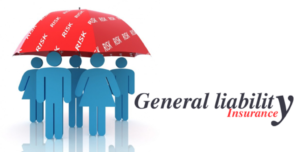Liability Insurance: What is NOT Covered
Most corporations opt for some form of liability insurance, and small businesses are no exception. But if you’re new to the world of risk management, the first question to ask yourself is: what exactly is liability insurance?

General liability insurance – often referred to as commercial insurance – is best described as coverage for damages that the insured becomes legally obligated to pay due to bodily injury, property damage or personal and advertising injury arising from the insured’s premises, operations, completed operations and products. Essentially, for both personal injury and property damage claims, you are covered for related legal fees, costs and expenses.
Important aspects of running a business that is covered by this type of insurance include:
- The cost of legal defense and any settlement or award should an owner be successfully sued;
- Protection against any liability an owner would face as a tenant of damaged rented property.
Some policies can also cover misleading advertising claims, including libel, slander, and copyright infringement.
So what is not covered in your liability insurance plan? Below is a general list of items that are not included in this type of insurance, but will vary by policy.
Employee medical expenses
- Damage to property owned by the business
- Vehicles or employees injured in a company vehicle
- Any damage or injury that involves a person in the company
To summarize, damages to anything owned by the business are not covered; that’s why liability insurance is called a “third party” insurance.

Tips for Selecting the Best General Liability Insurance for Your Business
Understanding the potential risks to your business is a fundamental way to begin this process, because the plan you might need really depends on the type of business you own.
For example, a building contractor faces much higher risks of injury and actual damage to his or her business than, say, a web designer’s business—simply due to the kind of work involved.
Once you have recognized your own business needs, the next step is to fully read the coverage policies. It may seem obvious, but it’s crucial to understand what certain agencies are offering in order to choose the best policy for you.
Something else to consider is the Business Owner’s Policy (BOP), a package deal that most often includes property, general liability, vehicular, and business interruption protection. This option streamlines the process and may cost less than purchasing multiple coverages from different insurers. Again, however, if your business has unique demands that are not covered by an umbrella policy such as the BOP, you may need to invest in additional plans.
If you have any questions regarding liability insurance policies, don’t hesitate to contact a Cleary representative. We’re here to help you protect your business and narrow down the coverages that your company truly needs.
